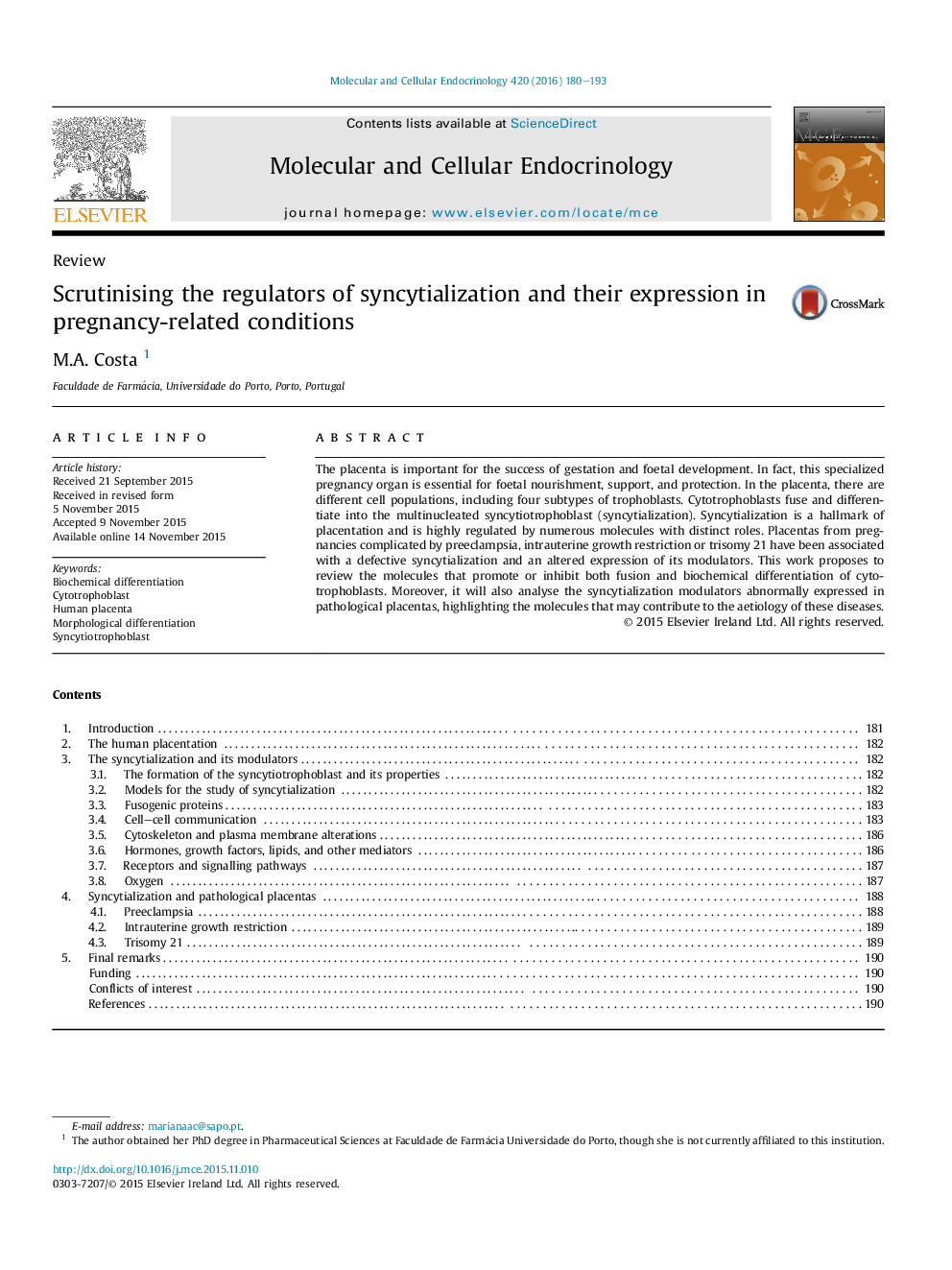| Article ID | Journal | Published Year | Pages | File Type |
|---|---|---|---|---|
| 8476854 | Molecular and Cellular Endocrinology | 2016 | 14 Pages |
Abstract
The placenta is important for the success of gestation and foetal development. In fact, this specialized pregnancy organ is essential for foetal nourishment, support, and protection. In the placenta, there are different cell populations, including four subtypes of trophoblasts. Cytotrophoblasts fuse and differentiate into the multinucleated syncytiotrophoblast (syncytialization). Syncytialization is a hallmark of placentation and is highly regulated by numerous molecules with distinct roles. Placentas from pregnancies complicated by preeclampsia, intrauterine growth restriction or trisomy 21 have been associated with a defective syncytialization and an altered expression of its modulators. This work proposes to review the molecules that promote or inhibit both fusion and biochemical differentiation of cytotrophoblasts. Moreover, it will also analyse the syncytialization modulators abnormally expressed in pathological placentas, highlighting the molecules that may contribute to the aetiology of these diseases.
Related Topics
Life Sciences
Biochemistry, Genetics and Molecular Biology
Cell Biology
Authors
M.A. Costa,
